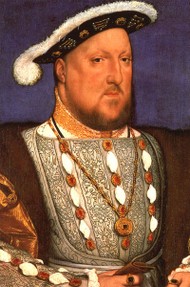 When he decided that he wanted a divorce from his first wife, Catherine of Aragon, the pope didn’t allow it. Henry VIII wanted to marry Anne Boleyn, and believed that his first marriage was invalid due to Catherine marrying his brother. It left Henry VIII one option: to break away from the Catholic Church. When you look at the future and how the religion kept changing, it can be easy to think that this was one of his bad decisions. However, he did move England out of the Dark Ages because of it.
When he decided that he wanted a divorce from his first wife, Catherine of Aragon, the pope didn’t allow it. Henry VIII wanted to marry Anne Boleyn, and believed that his first marriage was invalid due to Catherine marrying his brother. It left Henry VIII one option: to break away from the Catholic Church. When you look at the future and how the religion kept changing, it can be easy to think that this was one of his bad decisions. However, he did move England out of the Dark Ages because of it.
England was able to focus on more modern beliefs; beliefs that were stretching throughout Europe at the time. The people had the chance to read the bible for themselves as it was slowly translated into English; however, not all people in the country could read at the time.
One of his biggest accomplishments through the religious reformations was to make England more financially secure. While the dissolution of the monasteries is seen as a negative thing and people did lose their lives, there was a lot of money gained from that. The monasteries never paid tax, despite taking up a large area of the country and being extremely wealthy. The land could be used for other things, and would put more money back into the country’s pockets through tax.
Much of the money was put back into the king's coffers. Anne Boleyn wanted the money to go to the people, as she was very charitably minded. It was a problem between Thomas Cromwell and Henry's second wife, which may have been part of the reason for her downfall.
Henry VIII also managed to take away a tax, known as the “Peter’s Pence.” This tax was sent straight to the pope. Since the king was now the head of the church, there was no need to send money to the pope. Not only did this keep some money in the country, it stopped England funding its enemies, which was how the money was used.


 When he decided that he wanted a divorce from his first wife, Catherine of Aragon, the pope didn’t allow it. Henry VIII wanted to marry Anne Boleyn, and believed that his first marriage was invalid due to Catherine marrying his brother. It left Henry VIII one option: to break away from the Catholic Church. When you look at the future and how the religion kept changing, it can be easy to think that this was one of his bad decisions. However, he did move England out of the Dark Ages because of it.
When he decided that he wanted a divorce from his first wife, Catherine of Aragon, the pope didn’t allow it. Henry VIII wanted to marry Anne Boleyn, and believed that his first marriage was invalid due to Catherine marrying his brother. It left Henry VIII one option: to break away from the Catholic Church. When you look at the future and how the religion kept changing, it can be easy to think that this was one of his bad decisions. However, he did move England out of the Dark Ages because of it.
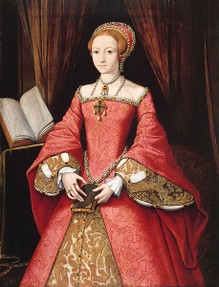 Elizabeth I is often viewed as the greatest Tudor monarch. She helped to tidy the mess that her father and siblings had created before her, and tried to put more money back into the country. However, she nearly didn’t get the chance to become queen, since she was the daughter of the executed Anne Boleyn.
Elizabeth I is often viewed as the greatest Tudor monarch. She helped to tidy the mess that her father and siblings had created before her, and tried to put more money back into the country. However, she nearly didn’t get the chance to become queen, since she was the daughter of the executed Anne Boleyn.

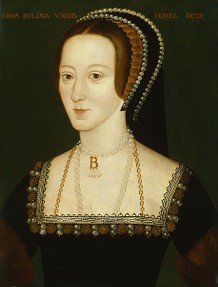 There are many more negative views of the second Tudor monarch compared to the positive ones. He has been widely seen as an obese tyrant, who was unhappy enough to marry six times. He cause the death of two of his wives directly and one indirectly. Catherine of Aragon may have lived for longer had she not been forced to live in such dire conditions after their divorce.
There are many more negative views of the second Tudor monarch compared to the positive ones. He has been widely seen as an obese tyrant, who was unhappy enough to marry six times. He cause the death of two of his wives directly and one indirectly. Catherine of Aragon may have lived for longer had she not been forced to live in such dire conditions after their divorce.

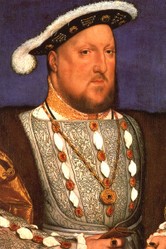

 Alternate History: What If Mary I Had a Child?on 01/26/2015
Alternate History: What If Mary I Had a Child?on 01/26/2015
 Francis II of France Dies: Mary, Queen of Scots Returns Homeon 12/05/2014
Francis II of France Dies: Mary, Queen of Scots Returns Homeon 12/05/2014
 Does Writedge Pay? Payment Proofon 12/03/2014
Does Writedge Pay? Payment Proofon 12/03/2014
 Alternate History: What If Lady Jane Grey Was Not Deposed?on 11/11/2014
Alternate History: What If Lady Jane Grey Was Not Deposed?on 11/11/2014

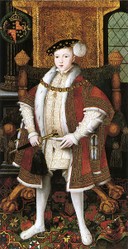

Comments
Anne Boleyn was a homewrecker, though Henry did not take much persuading. But the accusations of witchcraft were spurious, as were the accusations that she had affairs with her brother and her music master. Personally, I would not mistreat witches with allegations of this nature.
Henry's decline commenced when he decided to be a great warrior king, because this decision led him to make unjust war, one of the greatest evils that a person can commit. Aristotle, writing in Nichomachean Ethics, stated that we learn by doing. Henry in this warmaking did great evil, and thus he became a morally degraded person. Add this to his persistent adultery, which is an immoral act, because it involves breaking of solemn vows, and you see how evil took over his life. He degenerated to murdering his own people and committed grave wrong against the church.
The holy sistert that he executed was the Elizabeth Barton, the Maid of Kent, who was executed with five colleagues, four of them priests, after being tortured by Thomas Cromwell and sentenced without trial. Not only did Cromwell torture her, but he gave the only account of her "Confession." Henry was complicit in this malpractice. Sadly some priests gave evidence against her and her supporters and then asked to be proposed for the jobs that they had vacated by their execution.
I suggest that we look at the evil done by Henry and then balance it against the sum of the good.The scales are heavily weighted to evil. I note that the Scots stil resent Henry's atrocities at the Rough Wooing. So some of the ill feeling between England and Scotland is down to Henry.
I'm sure he did do good, earlier in his life, before he rebelled against God. But his evil deeds multiplied. This is your niche, and I'm not going to be writing about Henry VIII, but I couldn't resist publishing an article elsewhere about how he had a holy religious sister and several priests executed because they supported her. The sister had begged him not to divorce Catherine.
Thanks for all the comments.
I've never been a fan of Henry VIII personally, but I saw the question asked about whether he ever did any good and I really wanted to find out if he did. The anniversary of his death was the perfect time to post something about it.
I don't remember learning much about how good he was in history. I remember learning about his six wives, but all that was very biased and Anne Boleyn was made out to be the home-wrecker and witch. Most of the lessons were around Mary I and Elizabeth I. I can't believe now just how one-sided history lessons were, or maybe that's just the way I remember them. The more I research now, the more I learn the truth.
I believe that certain monarchs benefit from the literary and propaganda efforts of a class that has benefitted from their rule. A landowning class of people who had plundered the monasteries and taken their land grew up around Henry and owed their position to him. The Protestants like to think that he invented their church, even though he hated Protestantism, so they favoured him. [He was a schismatic Catholic.] So he gets a good press.
But I like to evaluate a ruler by the way that he treats the ordinary people, a pretty left wing approach I suppose, though I am only moderate left-centre. I cannot celebrate a bully who murdered so many people, imposed oaths on people under penalty of death and whose supposed reforms deprived poor people of the one institution that cared for them. I cannot celebrate a war monger who not only got hs country into unnecessary wars to aggrandize himself, but who wasted the nation's treasury in the process.
Shakespeare mistreated Crouchback to get in well with the Tudors, the fate of those who were not well in with them was always in people's minds!
Frank, I find it hard to understand the spin-doctoring that has gone on around Henry VIII. When I was a snotty-nosed pupil at school Prince Hal got favourable treatment yet Richard III, who wasn't that bad in comparison, was vilified. Do we have to blame Shakespeare and his mistreatment of Crouchback?
I regard his reign as one of the greatest blights that ever befell England, along with the monstrosities of King John and the evils of the Norman conquest. Monasteries were places where poor received charity. In Northern England the provided banking services; they provided schools; there were convents that taught girls. The monasteries provided some hospital services, including leprosaria. The monasteries were places of learning.
Furthermore, Henry did not use this new gained wealth for the people, he was too keen to spend it on luxuries or wars; and the land taken from the monasteries did not go to the people, but to favoured Aristocrats and gentry.
Henry also murdered thousands of people during the pilgrimage of grace, besides the many dissidents whom he executed. As Rupert says, he was widely hated.
Nice article, Alexandria! I enjoyed it a lot!:)
By the time of his death Henry was widely hated by the people whose welfare he placed second to his own lustful appetites.
His funeral, two weeks after his death was a gruesome affair. His lead-lined coffin was carried from London to Windsor so he could be buried next to the wife who bore him a son, Jane Seymour. On the way, his putrefying body exploded and - um - juices began to leak out. The stench was unbearable and according to an eyewitness account:
"[T]he pavement of the church was wetted with Henry’s blood. In the morning came plumbers to solder the coffin under whose feet was suddenly seen a dog creeping and licking up the king’s blood. If you ask me how I know this, I answer William Grenville, who could scarcely drive away the dog told me and so did the plumber also."
Delightful.